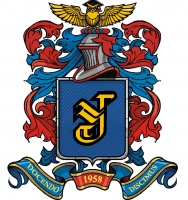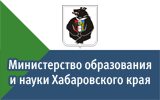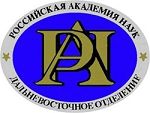Дальневосточный математический журнал
Кубические гомологии моноидов трасс |
А. А. Хусаинов |
2012, выпуск 1, С. 108–122 |
Аннотация |
| Статья содержит обзор результатов автора в области алгебраической топологии, применяемой в компьютерных науках. Описана связь между кубическими группами гомологий обобщенных торов и групп гомологий моноида трасс, действующего частично на множестве. Описаны алгоритмы вычисления групп гомологий асинхронных систем, сетей Петри и трассовых языков Мазуркевича. Основные результаты статьи доложены на секционном докладе Международной конференции «Торическая топология и автоморфные функции» (5–10 сентября 2011 г., г. Хабаровск, Россия). |
Ключевые слова: полукубическое множество, гомологии малых категорий, свободный частично коммутативный моноид, асинхронная система переходов, сети Петри, языки трасс |
Полный текст статьи (файл PDF) |
Библиографический список |
| [1] H.-J. Baues, G. Wirsching, “Cohomology of small categories”, J. Pure Appl. Algebra, 38:2-3 (1985), 187–211. [2] M.A. Bednarczyk M. A., Categories of Asynchronous Systems, Ph.D. Thesis, report 1/88, University of Sussex, 1988, http://www.ipipan.gda.pl/ [3] V. Diekert, Y. Me?tivier,, “Partial Commutation and Traces”, Handbook of formal languages, 3, Springer-Verlag, New York, 1997, 457–533. [4] U. Fahrenberg,, “A Category of Higher-Dimensional Automata”, Foundations of software science and computational structures, Lecture Notes in Computer Science, 3441, Springer-Verlag, Berlin, 2005, 187–201. [5] P. Gabriel, M. Zisman,, Calculus of fractions and homotopy theory, Springer-Verlag, Berlin, 1967. [6] E. Goubault, The Geometry of Concurrency, Ph.D. Thesis, Ecole Normale Supe?rieure, 1995, http://www.dmi.ens.fr/ [7] E. Haucourt, “A Framework for Component Categories”, Electronic Notes in Theoretical Computer Science, 230 (2009), 39–69, http://www.elsevier.com/locate/entcs [8] A. A. Husainov, “Homological dimension theory of small categories”, J. Math. Sci., 110:1 (2002), 2273-2321. [9] A. A. Husainov, “On the homology of small categories and asynchronous transition systems”, Homology Homotopy Appl., 6:1 (2004), 439–471, http://www.rmi.acnet.ge/hha [10] A. A. Husainov, “On the Leech dimension of a free partially commutative monoid”, Tbilisi Math. J., 1:1 (2008), 71–87, http://www.tcms.org.ge/Journals/TMJ/index.html [11] A. A. Husainov, “The global dimension of a trace monoid ring”, Semigroup Forum, 82:2 (2011), 261–270. [12] A. A. Husainov, The homology groups of a partial trace monoid action, arxiv:1111.0854 v1 [math.AT], Cornell Univ., New York, 2011, 30 pp., http://arxiv.org/abs/1203.3098v1 [13] A. A. Khusainov, “Homology groups of asynchronous systems, Petri nets, and trace languages”, Sib. Electron. Mat. Izv., 9 (2012), 13–44, http://mi.mathnet.ru/eng/semr341 [14] A. A. Khusainov, “Cubical homology and the Leech dimension of free partially commutative monoids”, Sb.: Math., 199:12 (2008), 1859–1884. [15] A. A. Khusainov, “Homology groups of semicubical sets”, Sib. Math. J., 49:1 (2008), 180–190. [16] A. A. Khusainov, V. E. Lopatkin, I. A. Treshchev, “Studying a mathematical model of parallel computation by algebraic topology methods”, J. Appl. Ind. Math., 3:3 (2009), 353–363. [17] J. Leech, “Cohomology theory for monoid congruences”, Houston J. Math., 11:2 (1985), 207 – 223. [18] S. Mac Lane, Categories for the Working Mathematician, Graduate Texts in Mathematics, 5, Springer-Verlag, New York, 1998. [19] A. Mazurkiewicz, “Trace theory”, Advances in Petri Nets 1986, Proceedings of an Advanced Course (Bad Honnef, 8.-19. September 1986), Lecture Notes in Computer Science, 255, Springer-Verlag, Berlin, 1987, 278–324. [20] B. Mitchell, “Rings with several objects”, Adv. Math., 8 (1972), 1-161. [21] M. Nielsen, G. Winskel, “Petri nets and bisimulation”, Theoretical Computer Science, 153:1-2 (1996), 211–244. [22] U. Oberst, “Homology of categories and exactness of direct limits”, Math. Z., 107 (1968), 87–115. [23] L.Yu. Polyakova, “Resolutions for free partially commutative monoids”, Sib. Math. J., 48:6 (2007), 1038–1045. [24] G. Winskel, M. Nielsen, “Models for Concurrency”, Handbook of Logic in Computer Science, 4, ed. Abramsky, Gabbay and Maibaum, Oxford University Press, 1995, 1–148. |






